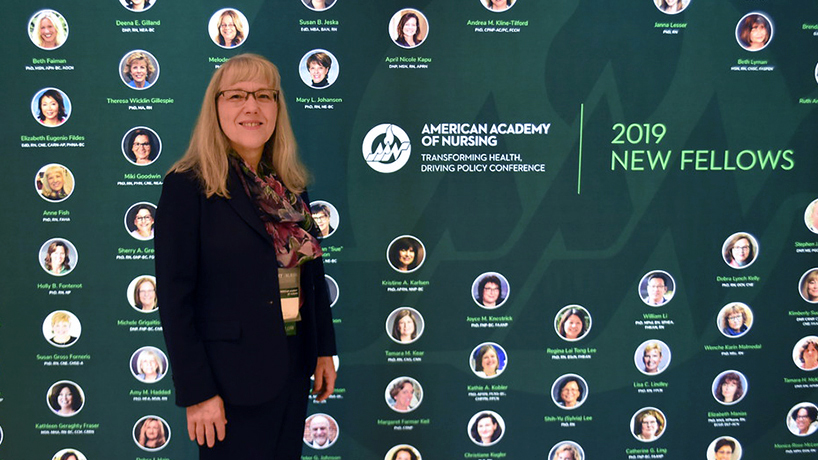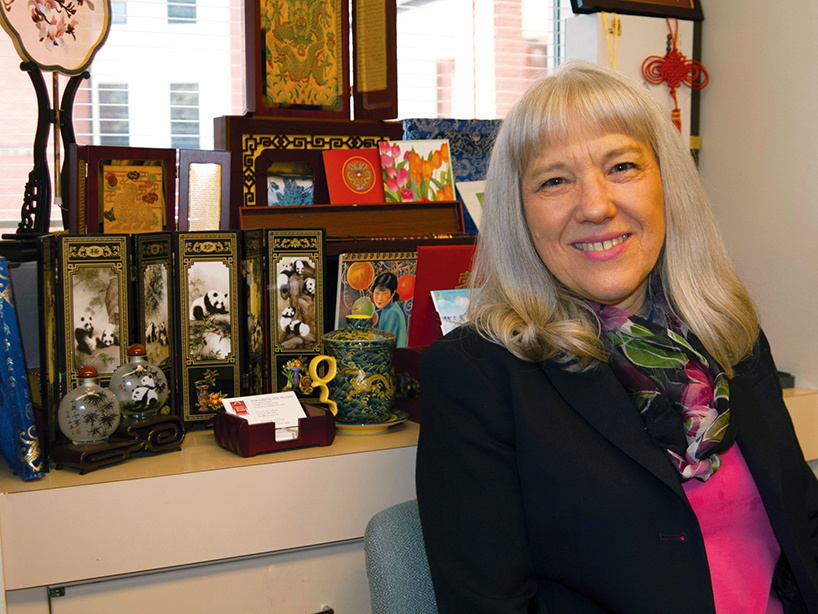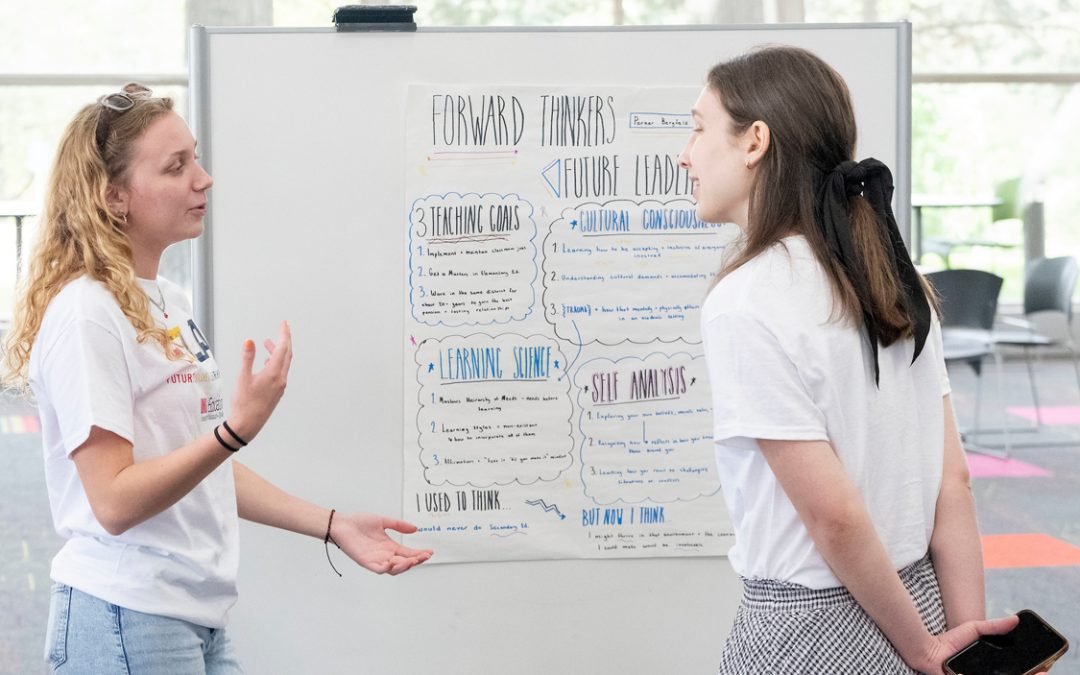
The American Academy of Nursing named College of Nursing Associate Professor Anne Fish a 2019 AAN fellow. (Photo courtesy of Anne Fish)
Sometimes the clichéd phrase is true: One thing does lead to another.
For example, a person volunteers to give a lecture, then is asked to be on a committee, joins an organization, finds herself on a grant review panel and so on. Then she applies to be a fellow at her profession’s top organization.
What happens next is that she gets accepted – on the first try.
At least that’s how things went for College of Nursing Associate Professor Anne Fish. The American Academy of Nursing selected the 20-year University of Missouri–St. Louis veteran for its 2019 class of academy fellows. Fish was inducted at a ceremony during the organization’s annual policy conference on Oct. 26 in Washington, D.C.
The AAN reserves the title for highly distinguished nurse leaders, of which there are more than 2,600 at this time. Of the many applicants, approximately 250 were chosen to join the prestigious ranks in 2019.
Fish decided to apply based on the urging of College of Nursing Dean Susan Dean-Baar, who is a sponsor. The application process took three weeks to complete and covered Fish’s contributions to the profession and worldwide health and alignment with the AAN’s mission.
Fish found out about her acceptance over email.
“I was happily surprised,” she said. “I was privileged to be chosen. It means to me that my thoughts about the impact my work has had were also thoughts that other people have. There was a huge panel of people reviewing my application, and being chosen meant that they also thought that I made a substantive contribution to the field, which, of course, made me feel really good.”
Fish is looking forward to helping determine policy with the AAN. That jibes with her longtime interest in health promotion.
She specializes in cardiovascular risk factor reduction as well as hypertension and diabetes behavioral nursing care. She’s contributed to the field of exercise science by providing leadership on a regional level with the American College of Sports Medicine and internationally through an ongoing, collaborative research program in the U.S. and China.
The author of countless published research studies and papers, Fish has been contributing to the field for almost 30 years. In that time, she’s touched the lives of countless researchers, physicians and patients and affected their health on a large scale. That’s something Dean-Baar recognized in her recommendation.
“Dr. Fish has made significant and sustained contributions to the development of science and practice in the area of cardiovascular health and self-management of chronic conditions in the United States and China,” Dean-Baar wrote. “Perhaps more importantly, she has trained more than a thousand nurses and physicians over the years on research and translation of research to practice for diabetes care and other conditions.”
The centerpiece of Fish’s accomplishments is establishing her ongoing research relationship with the Integration of Chinese and Western Medicine Hospital in Nanjing, China. That program came about in 2011 after Fish visited Nanjing and met with researchers at a handful of nursing schools.

Associate Professor Anne Fish specializes in cardiovascular risk factor reduction as well as hypertension and diabetes behavioral nursing care and researches both in the U.S. and China. (Photo by Pete Broeder)
“It turned out that my now-research team had, in Nanjing, China, studied what I did in hypertension but in diabetics,” Fish said. “So it was very easy for us to get together. I’ve learned a tremendous amount.”
Those meetings turned into a long-term collaboration. Fish returns a couple times a year to Nanjing, and she established a visiting scholars program with Peking University to bring nursing graduate students to UMSL, including 13 members of her research team.
Over the years, Fish’s relationship with practitioners and hospitals has deepened. Though her research projects are too vast to detail, one current study looks at insulin injection practices in patients with type 2 diabetes in China. They’re studying reuse of single-use needles and injection site rotation and the effects those practices have on insulin absorption.
Fish’s team is surveying patients and then testing their Hemoglobin A1c levels, which reveals the patients’ blood glucose levels over the last three months. Though this is primarily an observational study, Fish says one of its main benefits is a side one: patient education.
“The research team does diabetes education and support and then tries to change the habits patients have gotten into over time,” Fish said. “I think it’s a matter of convincing people that they can control their diabetes better. With chronic illness, people don’t realize that, every day, what they do today is actually affecting their bodies for the rest of their lives. What happens is the research actually reaches people that wouldn’t ordinarily be reached. There’s just not diabetes educators, not enough of them, for the people who have diabetes.”
That patient education is possible in part because of the reach of Fish’s research, which involves 10 hospitals in this project alone.
Fish is grateful for the many ways that UMSL has made her work in China possible. Fellowships from UMSL Global have helped cover travel costs, as has Dean-Baar. On top of the monetary support, mentors such as the nursing dean and encouragement from peers have made the difference for Fish.
“It’s been a very good experience,” Fish said. “I’ve learned a lot, and students have come here, and they didn’t think it was going to be what it was, and they didn’t think health care was going to be what it was. Health care is very different here, and the research gives thousands more people diabetes education and support, even though we’re studying people.”














